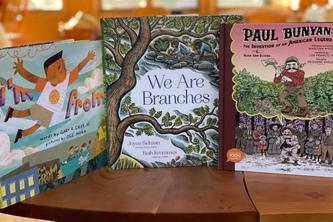
Techniques that personalize media messages in real-time have become increasingly sophisticated. This enables new personalization strategies, such as when people receive an ad on their mobile device that is simultaneously advertised on the TV commercials they’re watching. These techniques are allowed because people give permission, for example, by signing app user agreements that give apps permission to access the phone's microphone.
A University of Minnesota study, recently published in the journal Cyberpsychology, Behavior, and Social Networking, highlights people’s perceptions (i.e., acceptance and perceived surveillance) of techniques used to personalize messages across media in real-time.
Their survey of 1,008 U.S. respondents found:
- all personalization techniques are seen as unacceptable and associated with perceptions of surveillance overall;
- younger generations are more likely to accept and to perceive less surveillance than older generations (e.g., Gen X and Gen Y are the only generations that find social media analytics slightly acceptable);
- perceived surveillance and attitudes toward personalization were the strongest predictors of acceptance of all personalization techniques (i.e., those who perceived more surveillance were less likely to accept it and those who were more positive towards personalization in general were more likely to accept it);
- privacy cynicism and mobile device dependency positively influenced acceptance of personalization strategies (i.e., the more cynical towards privacy and the more someone depends on their mobile devices, the more likely they were to approve of personalized messages).
“Although personalized messages are perceived as an effective strategy by the industry because messages are more relevant to their audience and generate less waste, it has also been criticized because of the data mining practices and privacy risks involved,” said study lead Claire Segijn, an assistant professor in the University’s Hubbard School of Journalism and Mass Communication. “The high scores on perceived surveillance on all personalization techniques and the role of privacy cynicism is a reason for concern; people experience feelings of being watched but at the same time they give up.”
Segijn says the results help identify vulnerable groups when it comes to those who need more media literacy. For example, younger generations and people who are more dependent on their mobile device are more likely to accept the personalization techniques. Therefore, educating these groups by media literacy programs on the consequences of accepting cookies and user agreements of mobile apps for example, could be beneficial.
To continue this research, Segijn is studying the intended and unintended side effects of personalizing messages in real-time (also known as synced advertising) by examining how to increase advertising literacy and how this will help people to develop critical attitudes toward such practices.
- Categories:
- Arts and Humanities
- Social Sciences





